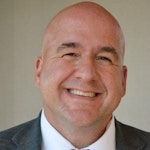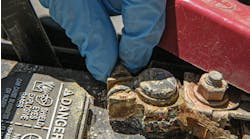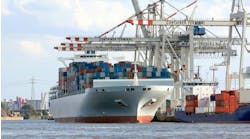When Aaron Telle became president and CEO of Telle Tire & Auto Centers in 2011, the dealership had one store, which dated back to 1942. Telle Tire, which is based in Webster Groves, Mo., now has 23 locations. Twenty-one of those have been acquisitions. (The company has purchased three tire dealerships this year.)
Telle Tire has become an expert at acquiring other tire dealerships and integrating them into its system, but that didn’t happen overnight.
Telle says he’s learned a lot of lessons along the way — some of them tough ones.
“We’ve learned that operating a four-bay shop takes as much time and energy as operating an eight-bay shop that has the potential to do, say, an additional $1.5 million in sales. So now we look for certain number of service bays. The store has to be the right size. And the market” where a store is located “is extremely important.
“On the sales side, we look for a certain (amount) of revenue,” he says. “We really want to see at least $1 million annually. And while the (selling) price has to be right, at the end of the day,” intangibles also are a factor in Telle Tire’s evaluation process.
The most significant intangible is the adaptability of new employees to Telle Tire’s existing culture. And sometimes you can’t get a good handle on that until after the purchase, says Telle.
Securing buy-in
Convincing new employees to buy into Telle Tire’s way of doing business requires a concentrated, systematic effort on the part of Telle and his leadership team, which includes his wife, Laura. That means traveling to a newly acquired store and sitting down with each employee.
“That first week (after an acquisition), we’re having one-on-one conversations — just making sure we get to know each other,” says Telle. “Nobody likes change. Everyone assumes that change is going to be negative. Some of those individuals who are sitting in those chairs when we come in are skeptical of us. Early on, I give a speech about who Telle Tire is, why we’re successful and why culture is everything at our company.
“When we acquire a business, I say, ‘Yes, we bought your equipment and bought your customer list and now have this nice building, but the biggest asset we’ve acquired is people. And the people within these walls determine if (the business) will be successful.’ Being able to convey that message at this stage — and to be able to back it up — is important.”
Telle and his team review a checklist with each employee. The document compares the employee’s current benefits to benefits that Telle Tire offers, which, in most cases, are superior.
“We’ll sit down and review what their exact pay is, including, if they have commission, how that’s paid; health and benefits; what’s being taken out of their paychecks currently; and more. Then we’ll look at Telle Tire’s benefits and say, ‘OK, here’s where you are right now. Here’s what’s going to happen.’ We show them they aren’t taking a step backward. In many situations, (their compensation) is improving on day one. In a lot of situations, we’ve improved their health benefits.”
Telle Tire isn’t open on Saturday — another benefit that Telle and his team point out. “Articulating to them that we’re only open five days a week” is critical, according to Telle. “Work-life balance is extremely important to me and it’s extremely important to our associates.”
At the same time, Telle Tire’s back office works to ensure a smooth transition for new employees. “We have a 90-day checklist. The first step is making sure all the human resources, benefits and pay functions for each individual are taken care of, they’ve been transitioned properly and everyone feels good about it. That’s the first hurdle. The next big one is transitioning (an acquired store’s) point-of-sale system” to Telle Tire’s system. “That’s one thing you look at fairly early in the process.”
Rebranding to Telle Tire's store format eventually follows “and there’s a process around how that takes place.”
Constant reinvestment
When acquiring and integrating new stores, Telle Tire does what it can to make sure existing employees don’t feel overlooked.
“As we grow, we don’t want to become so big that our people become more of a number,” says Telle. “As CEO, one of my jobs is to ensure that small family business feel and culture remain intact. I personally visit our stores and meet with the individuals who have been with us. They’re the reason we’re the business we are today. They’ve bought into our culture. They’ve bought into what we do as a company. And they’re the ambassadors to new associates who are coming onboard.”
Telle says he’s seen other businesses sink all of their dollars into newly acquired properties, while neglecting old ones — a situation he goes out of his way to avoid. “A new acquisition may get a new alignment rack. A new acquisition may get a nice, new parking lot. A new acquisition might get new scan tools. You have to provide the tools and space for new acquisitions to be successful. But sometimes when you grow quickly, you can start to forget about your old stores.
“We’re constantly staying on top of our current stores. We’re investing in multiple upgrades — making sure (the stores) are not falling behind and are getting the things they need to be successful.”
It’s just as critical to ensure the dealership maintains consistency and quality of service across multiple locations, according to Telle. That, too, is not left to chance.
“We’re constantly talking with our people. We’re constantly communicating with our store managers. We’re getting successful store managers who are running great stores to communicate and interact with new staff members. We have an onboarding process where we’re constantly bringing people to our training facility.
“I personally send out memos about customer service,” he continues. “We never send out memos saying, ‘We need to sell more brake pads. We need to sell more alignments.’ All of our communication is focused on how we can create the best customer experience. My philosophy has always been that if we can execute on that, the sales will be there.”
‘A major evolution’
The dealership’s acquisition process has been “a major evolution” over time, according to Telle. “For our first few acquisitions, there was no checklist. It was more seat-of-our-pants. One thing I was very fortunate to (experience) early — and I think this was more luck than any framing I did — was that our first four or five acquisitions were already well-run, great businesses and came with great people,” some of whom went on to join Telle Tire’s management team.
Telle admits some “mistakes” have been made along the way. Telle Tire once made a sub-optimal acquisition — two stores in a market that were four hours away from its home turf. “It was an asset sale. The stores were losing money.” And their customers were unfamiliar with Telle Tire.
“What I learned is doing something like that four hours away, where people don’t know who we are, is hard work. Doing that in our backyard or in a market where we have a strong presence is a different story. But I’m happy I made that mistake. It allowed me to learn and allowed us to improve and become better.
“One thing I always say is, ‘We’re all going to make mistakes in this company and I’m the one who will probably make the most mistakes. But as long as we’re learning from them, there’s nothing wrong with making mistakes.’ That’s a part of our culture. There’s nothing worse than when an employee makes a mistake in an environment where they feel their boss might yell at them or threaten to make them pay for that mistake or remove their commission. That creates an environment” that encourages employees to hide their mistakes.
“That’s where we, as an industry, sometimes get ourselves in trouble,” says Telle.
Employees who are focused on protecting themselves “are not looking after the best interests of the customer. We embrace mistakes. And when those mistakes take place, we can raise our hands and say, ‘We messed up, but we’ll take care of it.’”





